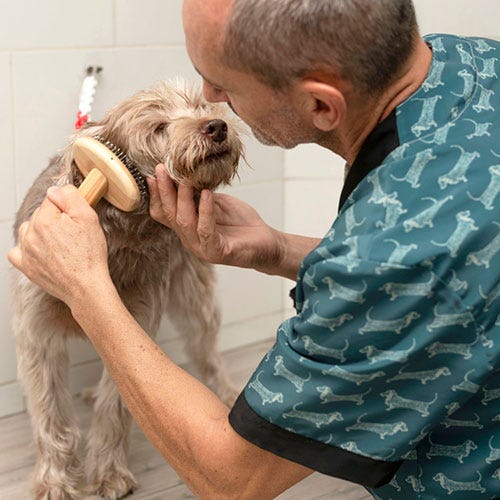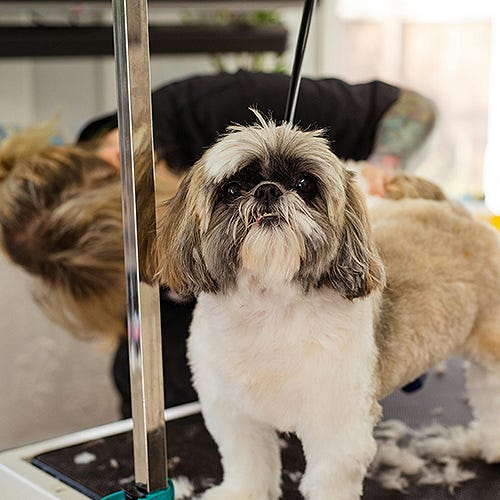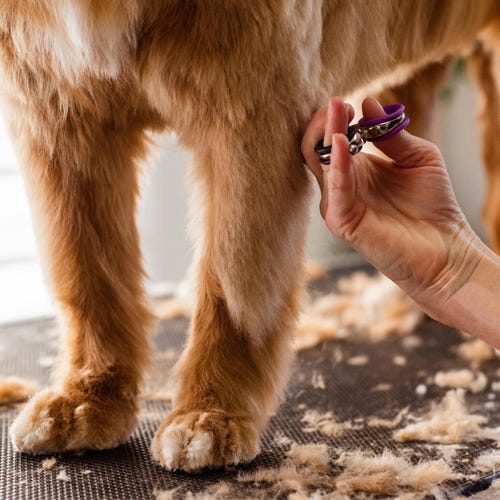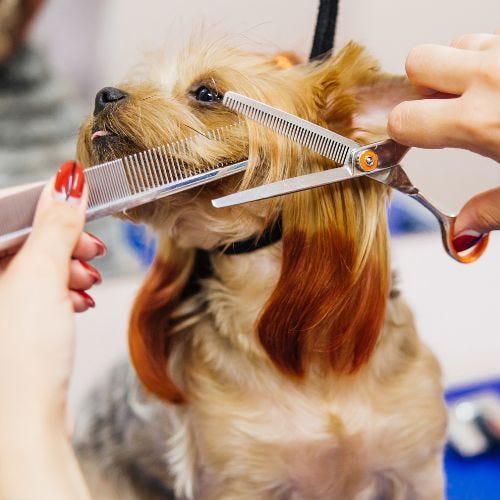Dealing with Intestinal Parasites
There you are, grooming away when something cool and damp drops on your hand. You look and are repulsed to find a small, squirmy white thing about the size of a grain of rice wriggling on your skin. It’s a tapeworm segment and has dropped from the dog's anus. After you fling it off, do a little dance of horror, and scrub your hands, you might wonder what to do next.
I have seen many groomers ask in online forums if they should send the pet home. Here is some information to help you decide how to proceed.
- It is not uncommon for dogs and cats to have some form of intestinal parasite. If you don’t happen to see one, like in the above scenario, you have no way of knowing whether the pet has parasites or not.
- Tapeworm, roundworm, hookworm, and whipworm are the most common intestinal worms found in house pets. (Giardia and coccidia are also intestinal parasites found in pets, but they are microscopic, so we would never see them as groomers.)
- Pet groomers are most likely to notice tapeworms if the pet has them. These segmented worms often cling to the fur around the pet’s anus. If they are dead and dried up, they shrink and yellow and may go unnoticed as we clip and brush the area, but if they are alive and wriggling, they are hard to miss. Especially if one falls on your skin. Ew.
- Dogs get tapeworms by eating a rodent carrying them or ingesting a flea. Fleas can carry and transmit tapeworms to mammals.
- Most intestinal parasites are species-specific, meaning they prefer to live in a specificspecies, but some can be transmitted to humans.
- Humans do not contract tapeworms directly from dogs. Here is a safety tip. Don’t eat a flea.
- Since many intestinal parasites are carried through feces, it is essential to clean up any poop in the grooming area quickly and thoroughly.
If you find tapeworm segments (or, more rarely, any other worm) while grooming, you can place one on a piece of paper and cover it with clear tape. When the pet is discharged, give this to the pet owner so they can take it to their veterinarian and buy the proper medication to rid the infestation. In most cases, a single pill will solve the problem.
Chances are that many of the pets you have groomed throughout your career have had some form of intestinal parasite that you knew nothing about. Practice proper and frequent handwashing, clean cages, tables, and tools well between pets, and discard any poop immediately to minimize any chance of spreading parasites.









